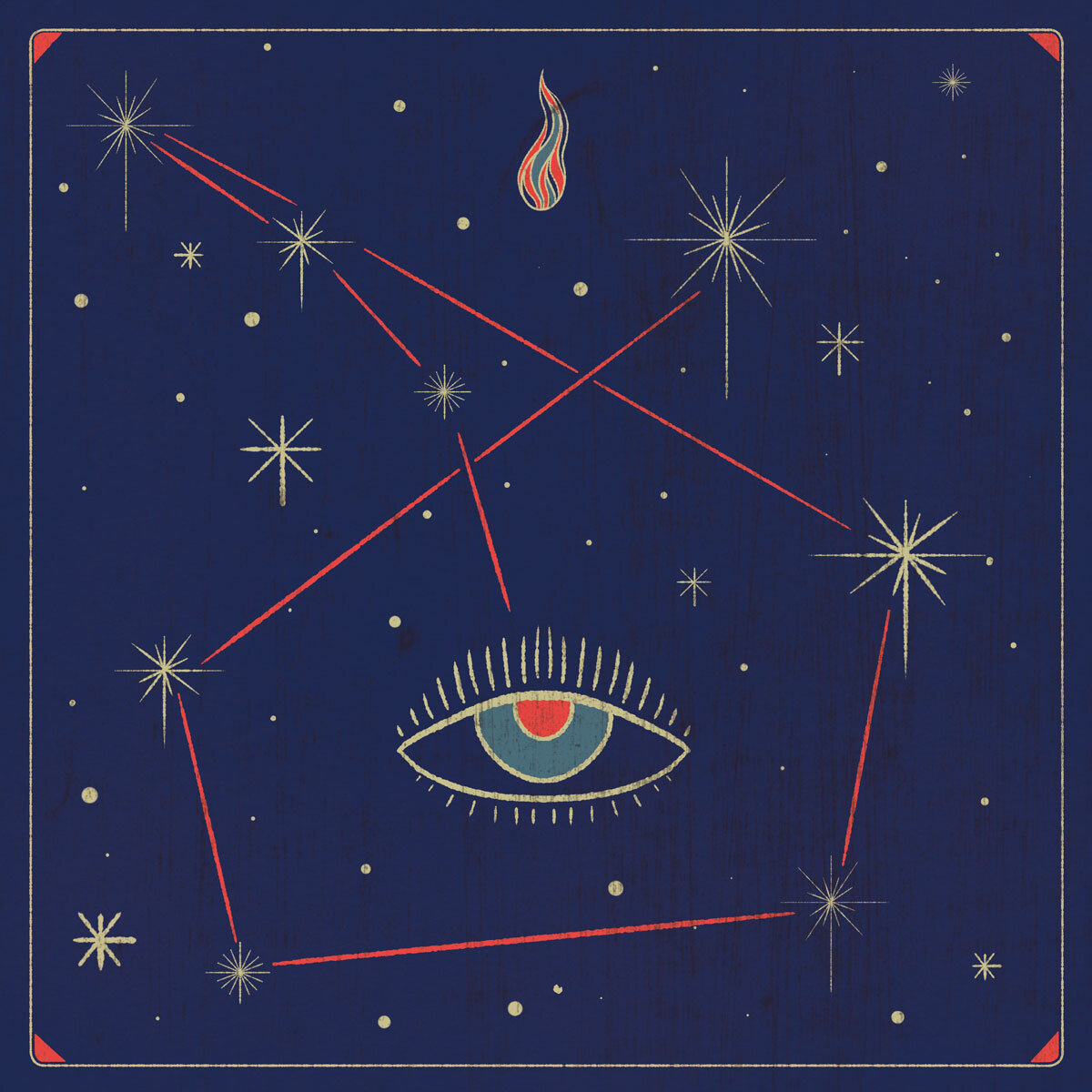Illustration © Kaitlynn Copithorne
Astrology is such a vast sphere of scholarship and practice that even the curious can find the scale of the topic too daunting to seek an entry point. After all, its history can be traced back to cave paintings from around 25,000 years ago, which suggest that human beings have been tracing lunar cycles for all that time. In light of which, let’s start by keeping things simple.
Louise Edington describes astrology as “an ancient science that uses observation of the planetary cycles over time to record patterns and events triggered by the movement of the cosmos”. There was once no distinction between astrologers and mathematicians - the “quants and data scientists of their day”, writes Alexander Boxer in A Scheme of Heaven. The Renaissance polymath Gerolamo Cardano—who laid the foundations for algebra and probability theory—was not only a mathematician, biologist, chemist, physician, physicist and philosopher, but an astrologer who wrote horoscopes for King Henry VIII.
Western Astrology originates from Babylonian astrology (credited with the inception of the Zodiac wheel) and the work of Alexandrian scholar Ptolemy, author of Tetrabiblos, a text containing the basic concepts which astrologers use today. The creation of personalised charts of the heavens representing an individual’s life path based on the place, time and date of their birth—known as natal astrology—followed.
As the popularity of the Church grew, interest in astrology waned, or rather, was curbed by clerics. Nonetheless it was adopted by 16th century Lutherans who were intrigued by the stars’ potential to guide morality based on a prospectively vengeful higher power. The vigorous resurgence of interest in the occult during the late 19th century ignited an even greater fascination with the workings of the cosmos. Theosophists such as Alan Leo and Dane Rudhyar would go on to create humanistic modalities of astrology which, influenced by the work of Carl Jung, were not only event-oriented but contained psychology and deep character analysis in their orbit too.
And so we arrive at contemporary astrology, where we find strong narratives of not only personal-development and embodiment, but poetry and politics too. In today’s iteration there are evermore nuanced approaches to divination in particular. As practitioner Renee Sills, notes in an interview with Cunning Folk.
I do think that we can use astrology to see into and articulate someone’s past or to describe the idiosyncratic nature of a person’s inner experiences. I think we can also effectively use it to describe future possibilities, upcoming challenges and opportunities, or to give perspective on timing. But, I believe deeply in free will and I don’t personally think it’s useful or possible to tell someone exactly what will happen in their future and to trust that that information won’t create its own magnetic attraction or cause and effect.
According to Renee, simple observation is one of the key elements of beginning a study of astrology. Here’s a short guide to learning how to observe the cosmos in a way that relates to you personally.
Keep a lunar journal
Look out your window and, if it’s a clear night, you’ll be able to see the current phase of the moon. Notice how your body and mind shift in correlation with the moon’s journey around the Earth. How do you feel as the moon waxes and wanes? Beginning a lunar journal can help you to track these influences, whilst becoming more mindful of your particular relationship to cosmic forces.
Study your chart
You can easily discover your own natal chart online using free tools such as this one. Begin by looking at your chart and noticing patterns. What shapes do those lines and angles symbolise for you? For example, my own chart’s lines are shaped like a cup. Given that my Sun sign is in Scorpio, which is a water element (and as a tarot reader I know that cups signify water, and therefore emotions), I’m inspired to think of how emotions dominate my life. Perhaps it’s no coincidence that I have a mood disorder! I could also notice that the planets congregating in the centre of my chart are dominated by water. If you’re looking for a simple guide to basic astrological symbols and themes then Chani Nicholas’ You Were Born for This: Astrology for Radical Self-Acceptance is a great starting point.
Get a reading
If you’re astro-curious it can be helpful to see a professional astrologer who will assist you when it comes to diving deeper into your natal chart. Use research and your intuition to find someone whose style and interests resonate with you. If your desire is embodiment then Renee might be the one, or if you’re particularly drawn to the poetry of astrology, there’s Francesca Lisette. On the financial side, many astrologers offer pay-what-you-can options.

